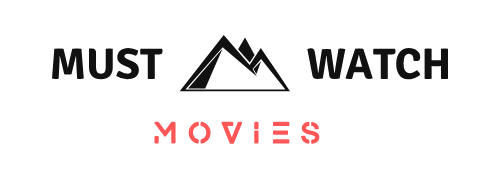Chinese Coffee 2000
Chinese Coffee
When Harry Levine, an aging, unsuccessful Greenwich Village writer, is fired from his job as restaurant doorman, he calls on friend and mentor Jake, ostensibly to collect a long-standing debt.
When Harry Levine, an aging, unsuccessful Greenwich Village writer, is fired from his job as restaurant doorman, he calls on friend and mentor Jake, ostensibly to collect a long-standing debt.
Videos & Photos
All 1 Videos & 3 Photoscast
Full Cast & Crew... Harry Levine
... Jake Manheim
... Joanna
... Mavis
... Maurice
... Supermarket cashier
User reviews
See All 1 Reviews10 Sep 2022 by tmdb28039023
In Carlito's Way, Al Pacino warns us that “a favor’s gonna kill you faster than a bullet.” In Chinese Coffee (2000) we see what he meant by that. Harry Levine (Pacino) and Jake Manheim (Jerry Orbach), whose friendship seems to illustrate that misery loves company, have exchanged favors; Harry loaned Jake $500 to buy photographic equipment, and Jake said he would read Harry's manuscript. Jake, however, has no money to pay the strapped-for-cash Harry back (both are starving artists at an age when this lifestyle has long since ceased to be a voluntary choice and has become "nothing but a long history of failure."), and claims to have not read Harry’s manuscript; in fact, he has stashed the pages in the freezer like a piece of raw meat – there is something in them he finds hard to swallow, let alone digest, because to him it would be not unlike to anthropophagy. The subject of an artist cannibalizing the experiences of someone close to them is common; in the last couple of years alone we’ve had, with varying degrees of success, Steven Soderbergh’s Let Them All Talk and Sam Levinson’s Malcolm & Marie. This material, that essentially comes down to verbal fencing, behooves from a spare setting and cast – which is why Malcolm & Marie succeeded where Let Them All Talk failed; the former is an original screenplay by Levinson, but it would easily feel at home on Broadway. Chinese Coffee, adapted by Ira Lewis from his one-act play of the same name, is even more austere, taking place mostly in an apartment described as “stifling”, “thick” and “dense”, and whose windows are bolted shut. Pacino – who starred in the original stage production and directed the film adaptation – and Lewis know their stuff inside and out, and the result is lean and tight; at the same time, they wisely take advantage of the freedom afforded them by the medium of film to relieve the claustrophobia of the main set, which they leave from time to time, to visit, usually in flashback, more open spaces – unlike the play, where all the action takes place in a small apartment in Greenwich Village (at other times, however, the film simply swaps one cubbyhole for another; specifically, the basement Harry shared with his ex Joanna (Susa Floyd).
Genres:
Release Date:
Sep 02, 2000 (United States)
Run Time:
1hr 39`
MMPA Rating:
R
Original Language:
English
Production Countries:
United States
Status:
Released
Plot Keywords:

Related Movies To
Chinese Coffee
In Carlito's Way, Al Pacino warns us that “a favor’s gonna kill you faster than a bullet.” In Chinese Coffee (2000) we see what he meant by that. Harry Levine (Pacino) and Jake Manheim (Jerry Orbach), whose friendship seems to illustrate that misery loves company, have exchanged favors; Harry loaned Jake $500 to buy photographic equipment, and Jake said he would read Harry's manuscript. Jake, however, has no money to pay the strapped-for-cash Harry back (both are starving artists at an age when this lifestyle has long since ceased to be a voluntary choice and has become "nothing but a long history of failure."), and claims to have not read Harry’s manuscript; in fact, he has stashed the pages in the freezer like a piece of raw meat – there is something in them he finds hard to swallow, let alone digest, because to him it would be not unlike to anthropophagy. The subject of an artist cannibalizing the experiences of someone close to them is common; in the last couple of years alone we’ve had, with varying degrees of success, Steven Soderbergh’s Let Them All Talk and Sam Levinson’s Malcolm & Marie. This material, that essentially comes down to verbal fencing, behooves from a spare setting and cast – which is why Malcolm & Marie succeeded where Let Them All Talk failed; the former is an original screenplay by Levinson, but it would easily feel at home on Broadway. Chinese Coffee, adapted by Ira Lewis from his one-act play of the same name, is even more austere, taking place mostly in an apartment described as “stifling”, “thick” and “dense”, and whose windows are bolted shut. Pacino – who starred in the original stage production and directed the film adaptation – and Lewis know their stuff inside and out, and the result is lean and tight; at the same time, they wisely take advantage of the freedom afforded them by the medium of film to relieve the claustrophobia of the main set, which they leave from time to time, to visit, usually in flashback, more open spaces – unlike the play, where all the action takes place in a small apartment in Greenwich Village (at other times, however, the film simply swaps one cubbyhole for another; specifically, the basement Harry shared with his ex Joanna (Susa Floyd).
Cast & Crew of
Chinese Coffee
Directors & Credit Writers
... Script Supervisor
... Director
Cast
... Harry Levine
... Jake Manheim
... Joanna
... Mavis
... Maurice
... Supermarket cashier
... Counterman
... Harry's Brother
... Sarah / Bellydancer
... Hamlet Actor
... Etecoles / Actor in Play
... Actor in Play/Messenger
... Cafe Dante Waitress
... Sgt. Boyle - Undercover Cop #1
MS
Mark Scarola... Undercover Cop #2


 7.1 / 10
7.1 / 10

























